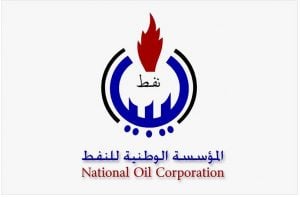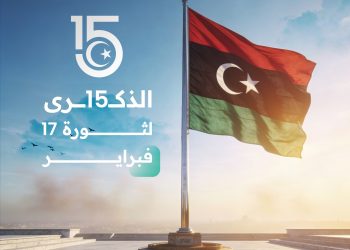By Sami Zaptia.

London, 30 June 2020:
Libya’s state National Oil Corporation (NOC) announced yesterday that it is hopeful that Libya’s oil blockade will be lifted soon. It revealed that there have been ‘‘weeks of negotiations’’ both with domestic and international stakeholders – under UN and US supervision.
It referred to states interfering in Libya’s affairs as ‘‘regional countries behind oil blockade’’.
The NOC statement read: The ‘‘NOC confirms there have been ongoing negotiations to resume oil production over the past several weeks with the between the GNA, NOC and regional countries, under the supervision of the UN and the US. The corporation is hopeful that those regional countries will lift the blockade allowing NOC to resume its vital work for the benefit of all the Libyan people.
NOC is determined that the agreement will guarantee transparency and that oil revenues will achieve social justice for all Libyans. The corporation also intends the agreement will include solutions to protect the oil facilities and make sure they are never used as a military target or a political bargaining chip again’’.
On Friday (26 June) , the US embassy had tweeted ‘‘As responsible actors in Libya return to UN-facilitated ceasefire talks and demand an end to foreign interference, allowing the NOC to immediately resume operations is a critical step to re-establish Libyan sovereignty’’.
On the same day, the NOC had expressed its deep concern at ‘‘the presence of Russian and other foreign mercenaries inside (its) Sharara oilfield’’. Today it revealed that the 164-day oil blockade has cost Libya US$ 6.3 bn in lost potential revenues.
The role of the tribes / Hafter?
Yesterday, a statement was issued by a so-called ‘‘Libyan Cities and Tribes Move (ment) to Conserve (Libya’s) Oil Resources’’ stamped and dated from the eastern oil crescent area of Zueitina.
After paying tribute to Khalifa Hafter and referring to the ‘‘conspiracy by Turkey’’ to usurp Libya’s wealth, the statement said its movement had blockaded Libya’s oil production and exports demanding that a system be put in place to ensure that oil revenues do not end up in the hands of ‘‘extremist militias’’.
However, the statement conceded that the blockade had led to increased food prices, the dollar exchange rate and the inability of the state to pay wages.
The movement claimed, that as a result of these negative repercussions of the oil blockade, it has now ‘‘granted full authority’’ to Hafter’s Libyan National Army (LNA) ‘‘General Command to communicate’’ with UNSMIL and the international community to ‘‘find a solution to prevent oil revenues from falling into the hands of terrorist militias’’.
The alleged proposed deals
It will be recalled that one of the purported drivers for Hafter’s April 2019 military attack on Libya was the inequitable distribution of Libya’s oil wealth. The east accuses Tripoli and western Libya of corruption, leaking Libya’s oil wealth to ‘‘Islamists’’ domestically and their backers internationally and financing ‘‘terrorist militias’’.
The ‘‘solution’’ referred to in the tribe’s statement that ‘‘prevents’’ oil revenues from falling into the hands of ‘‘terrorist militias’’ seems to be a process of diving up Libya’s rentier oil cake at source to its three historical regions. The proposed distribution process would bypass the much-hated Tripoli Central Bank of Libya and its (three times sacked) Governor Saddek El-Kaber seen as a corrupt Islamist in the pockets of western Libya militias by the east.
There are several unsubstantiated versions of the proposed plans floating about. One is a version of the Iraq ‘‘food for oil’’ scheme where the international community would oversee how Libya’s oil revenues are distributed.
The details of another version is that the oil blockade would be lifted, and oil production and exports would resume as normal – but revenues would no longer flow into the Tripoli Central Bank of Libya’s overseas (Libyan Foreign Bank) account – but rather into a new account not under its control but rather under the control of the more neutral and technocratic National Oil Corporation (NOC).
The oil revenues flowing into this account would then be frozen for a few months during which the conflicting stakeholders would hammer out a distribution mechanism of the oil revenues between the three historical Libyan regions of Western Libya (Tripolitania), the South (Fezzan) and East (Cyrenaica).
Whilst the concept may seem commendable at first sight in its thrust towards decentralization and equitable distribution of wealth, both proposals do present numerous potential domestic and international difficulties – ranging from sovereignty to legitimacy, accountability and conflicting international interests.
The proposal would need the approval of both the internationally recognized Libyan government in Tripoli and the eastern authorities – as well as the ‘‘interfering’’ international stakeholders. For example, what would be the incentive for Russia, France, UAE and Egypt to support such a deal? If, for example, as reported, Turkey will get some old debts for part-completed projects as well as new projects from Tripoli – what will Russia, France, UAE and Egypt get?
It will be recalled that the outgoing UNSMIL head, Ghassan Salame, believes that many in the international community do not want to see Libya’s oil flowing again too soon in view of low international crude oil prices.
https://www.libyaherald.com/2020/06/27/noc-expresses-deep-concern-at-russian-mercenary-presence-at-sharara-oilfield/
https://www.libyaherald.com/2020/06/24/salame-blames-international-community-for-libya-failure/







